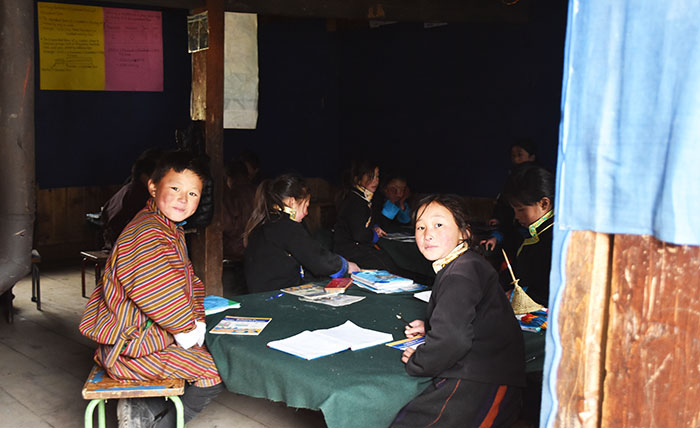MoE still exploring possibility to provide tablets to students
Yangchen C Rinzin
The Covid-19 hit the education sector hard last year but it allowed the sector to develop a Learning Management System (LMS).
Mooted as a major transformation, the system is expected to enhance e-learning, which faced several issues last year when schools had to be closed.
LMS will be virtual teaching accessible to all students; students and teachers will have access to quality online courses.
Basically, the system will prepare the education ministry to face situations like lockdown and school closure.
Chief ICT Officer, Tsheyang Tshomo, said that the development of learning management system software was completed. It is being tested.
She said the LMS, a platform for collaborative learning among students and teachers, would provide customised learning materials that are aligned with the curriculum. “This will also provide statistics about student learning for intervention and decision making.”
The education ministry will test the system for two weeks, in Paro and Thimphu in three subjects—Dzongkha, Maths, and English for class VIII.
Tsheyang Tshomo said that about 18 teachers in both dzongkhags were trained on the system usage between March 1 and 8. Nationwide training of teachers is expected to begin in April.
She said that LMS was being developed as a part of the Digital Flagship Programme. “It’s a web-based device independent system that will facilitate learning anywhere anytime,” she added. “The system is intended to benefit the schools from Classes PP-XII.”
In LMS, the chief said, teachers, can create courses, add activities such as quizzes, assignments, interactive contents, videos and assign their students to the course. “Student will have access to the course and submit assignments, which can be assessed and graded.”
The LMS is expected to cost Nu 6.5 million funded by the Government of India.
The ministry is also working on the Education Flagship and Digital Drukyul Flagship led by the information and communications ministry to overcome challenges like shortage of computers at school, internet connectivity, and bandwidth. Without this, the implementation of LMS would be difficult.
However, given the challenges related to internet connectivity in the remote areas, the ministry will continue to distribute Self-Instructional Materials to students in case of a lockdown or in case the ministry fails to implement LMS.
However, students will require a device to use the LMS effectively.
The ministry proposed the prime minister to explore the possibility of issuing tablets to about 173,000 (PP-XII) students in the country.
The tablets’ distribution would also ensure there is no disparity among students who can afford devices and those who cannot.
The ministry has also looked into the possibility of providing tablets, first to students who cannot afford the device. The ministry already has a list of about 30,000 disadvantaged students.
However, Tsheyang Tshomo said that the government has asked the education ministry to rework the proposal and submit again.


